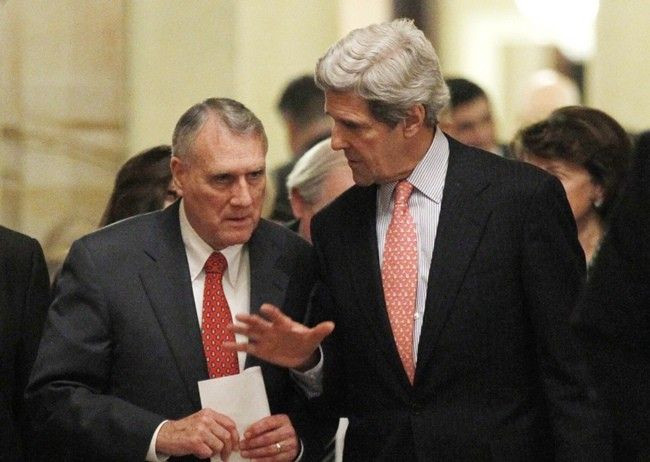Start Treaty set to pass, clears key hurdle

The nuclear-arms reduction treaty between the United States and Russia cleared a key hurdle in the Senate on Tuesday as Senators voted by a significant margin to advance the bill for a final vote.
Closing out debate on a bill or treaty, as the Senate did by a margin of 67-28 on Tuesday, is often seen as a proxy vote for the final count to decide on passing the measure. The Senate is required to ratify treaties negotiated by the President. At least 60 votes were needed to moved the bill forward without the threat of a filibuster.
Senate majority leader Harry Reid, D-NV said on Tuesday that he was encouraged that a number of my Republican colleagues have joined us to support the treaty.
I am hopeful that when the Senate votes tomorrow on ratification, we will send a powerful statement about America's commitment to non-proliferation with a strong bipartisan vote, he said.
Top Republican Senators -- Mitch McConnell, R-KY and John Kyl, R-AZ, had voiced their opposition to the bill in recent days. In comments yesterday, McConnell said the treaty should not have been decided under the pressure of a deadline to pass it before the end of the current session of Congress and objected to the flawed nature of the verification procedures to ensure proper counts of nuclear weapons.
Debate on the bill, which included discussions about information which could compromise national security if made public, took place in a closed-door secret session late Monday.
Sen. John Kerry, D-MA, chairman of the Foreign Relations committee, said Tuesday that as a result of the vote we are on the brink of writing the next chapter in the 40-year history of wrestling with the threat of nuclear weapons.
He expressed confidence in ratifying the treaty saying that all will see a victory for common sense and the Senate act in its best traditions.
Kyl in a speech on the floor of the Senate on Monday, said that with various high profile votes on other bills taking place during the last several weeks, Reid was trying to jam all of them through the Senate. He had urged consideration of the measure in the next Congressional session as well.
According to Kerry, the U.S. and Russia currently have more than 90 percent of the world's nuclear weapons.
According to the new treaty, each side would be allowed 1,550 deployed warheads, 700 deployed delivery vehicles, and 800 deployed and non-deployed launchers. A deployed weapon is one that is ready for use, and a non-deployed launcher is one that is part of a test or training facility.
If the new START is approved and goes into effect, it will lower the nuclear arsenals in each nation by roughly 30 percent from the last agreement.
Experts say that lowering arsenals - thus cutting down on the possibility of an accident or a terrorist organization obtaining a deadly weapon -- is only one of the ways the treaty makes the world a safer place.
© Copyright IBTimes 2024. All rights reserved.





















